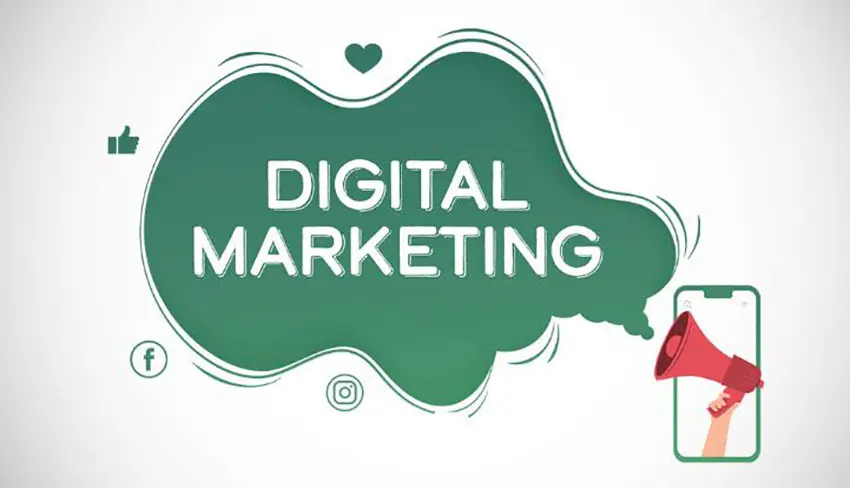read Also https://softfind.net/wp-admin/post.php?post=1576&action=edit
external linking read Also-https://www.amazon.in/

Digital marketing refers to the use of digital channels, devices, and platforms to promote products, services, or brands to consumers and businesses. It encompasses various online marketing tactics and strategies aimed at reaching target audiences through the internet and digital technologies. In today’s interconnected world, digital marketing has become essential for businesses of all sizes to effectively engage with their customers and achieve their marketing objectives.
H2- Components of Digital Marketing
H3- Search Engine Optimization (SEO): SEO focuses on optimizing websites and content to improve their visibility and rankings in search engine results pages (SERPs). By utilizing relevant keywords, creating high-quality content, and optimizing technical aspects, businesses can attract organic traffic from search engines like Google.
H3- Content Marketing: Content marketing involves creating and distributing valuable, relevant, and consistent content to attract and retain a targeted audience. Content can take various forms, including blog posts, articles, videos, infographics, ebooks, and more. The goal is to provide information that educates, entertains, or solves problems for potential customers, ultimately driving engagement and conversions.
H3- Social Media Marketing: Social media marketing utilizes social media platforms such as Facebook, Instagram, Twitter, LinkedIn, and TikTok to connect with audiences, build brand awareness, and drive website traffic. Businesses engage with users through organic content, paid advertising, influencer collaborations, and community management strategies to foster relationships and promote their offerings.
H3- Email Marketing: Email marketing involves sending personalized messages and promotional content to a targeted list of subscribers via email. It is used to nurture leads, build customer loyalty, promote products or services, and drive conversions. Effective email marketing campaigns leverage segmentation, automation, and analytics to deliver relevant content and optimize campaign performance.
H3- Pay-Per-Click Advertising (PPC): PPC advertising allows businesses to display ads on search engines (Google Ads) or social media platforms (Facebook Ads, LinkedIn Ads) and pay a fee each time a user clicks on the ad. It is a cost-effective way to drive immediate traffic to websites, generate leads, and increase sales by targeting specific keywords, demographics, and behaviors.
H3- Affiliate Marketing: Affiliate marketing involves partnering with individuals or other businesses (affiliates) who promote a company’s products or services in exchange for a commission on sales generated through their referral efforts. It is a performance-based marketing strategy that leverages third-party influencers to expand reach and drive conversions.
H3- Online PR (Public Relations): Online PR focuses on managing a brand’s reputation and enhancing its visibility through digital channels. It involves activities such as press releases, guest blogging, influencer outreach, and online reviews management to build credibility, authority, and positive perceptions among target audiences.
H2- Benefits of Digital Marketing
Digital marketing offers numerous benefits to businesses:
H3- Global Reach: Businesses can reach a global audience without geographical limitations, expanding their market reach and customer base.
H3- Targeted Advertising: Precise targeting capabilities enable businesses to reach specific demographics, interests, and behaviors, optimizing marketing efforts and maximizing ROI.
H3- Measurable Results: Digital marketing provides real-time analytics and metrics to track campaign performance, measure KPIs (Key Performance Indicators), and make data-driven decisions for continuous improvement.
H3- Cost-Effectiveness: Compared to traditional marketing channels, digital marketing often offers lower costs per acquisition (CPA) and higher ROI, making it accessible for businesses of all sizes.
H3- Personalization: Tailored marketing campaigns based on customer preferences and behaviors enhance engagement, satisfaction, and loyalty.
H3- Flexibility and Adaptability: Digital marketing allows quick adjustments to strategies based on market trends, consumer behavior, and campaign performance, ensuring agility and responsiveness.
H3- Brand Building: Consistent online presence and engagement across digital channels build brand awareness, authority, and credibility over time.
H3- Competitive Edge: Small and medium-sized businesses can compete effectively with larger corporations by leveraging digital marketing strategies and innovation.
In conclusion, digital marketing is a dynamic and integral part of modern marketing strategies, empowering businesses to connect with audiences, drive growth, and achieve their business goals in the digital age. By harnessing the power of digital technologies and leveraging various online platforms, businesses can effectively navigate and capitalize on the evolving landscape of digital marketing to stay competitive and relevant.


klklkllklkklkllk